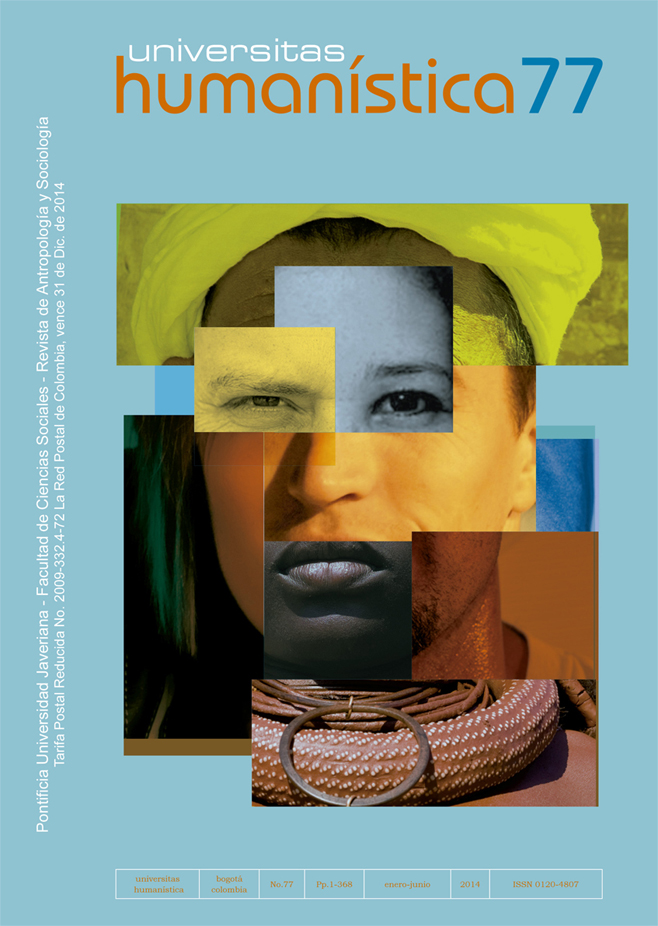Abstract
This article presents a reflection about the development of Mexican anthropology in recent decades, especially since the publication of the text De eso que llaman antropología mexicana (Warman, Nolasco, Bonfil Olivera, & Valencia, 1970). II consider that this publication represents a shift in the anthropological practice as it presents a much more militant and active approach, as well as a recognition of the colonial dimension in its configuration as a discipline. I am interested in demonstrating what the changes in social anthropology in Mexico were from that decade on, and what has been the presence of postcolonial discussion in the discipline. I also analyze whether it has generated a critical and de-colonial view from which the ways in which the indigenous is represented as otherness is questioned, contrasting in this way the influence of the post-revolutionary Mexican indigenous policy that was valid until the end of the 1970's. Finally, I point out the two sides of Mexican
anthropology that I consider to have made a reading close to the postcolonial debate, although they are not necessarily recognized as part of that perspective.

This journal provides immediate open access to its content on the principle that making research freely available to the public, encourages greater global exchange of knowledge.
The journal Universitas Humanística is registered under a Creative Commons Attribution 4.0 International Public License. Thus, this work may be reproduced, distributed, and publicly shared in digital format, as long as the names of the authors and Pontificia Universidad Javeriana are acknowledged. Others are allowed to quote, adapt, transform, auto-archive, republish, and create based on this material, for any purpose (even commercial ones), provided the authorship is duly acknowledged, a link to the original work is provided, and it is specified if changes have been made. Pontificia Universidad Javeriana does not hold the rights of published works and the authors are solely responsible for the contents of their works; they keep the moral, intellectual, privacy, and publicity rights.
Approving the intervention of the work (review, copy-editing, translation, layout) and the following outreach, are granted through an use license and not through an assignment of rights. This means the journal and Pontificia Universidad Javeriana cannot be held responsible for any ethical malpractice by the authors. As a consequence of the protection granted by the use license, the journal is not required to publish recantations or modify information already published, unless the errata stems from the editorial management process. Publishing contents in this journal does not generate royalties for contributors.


